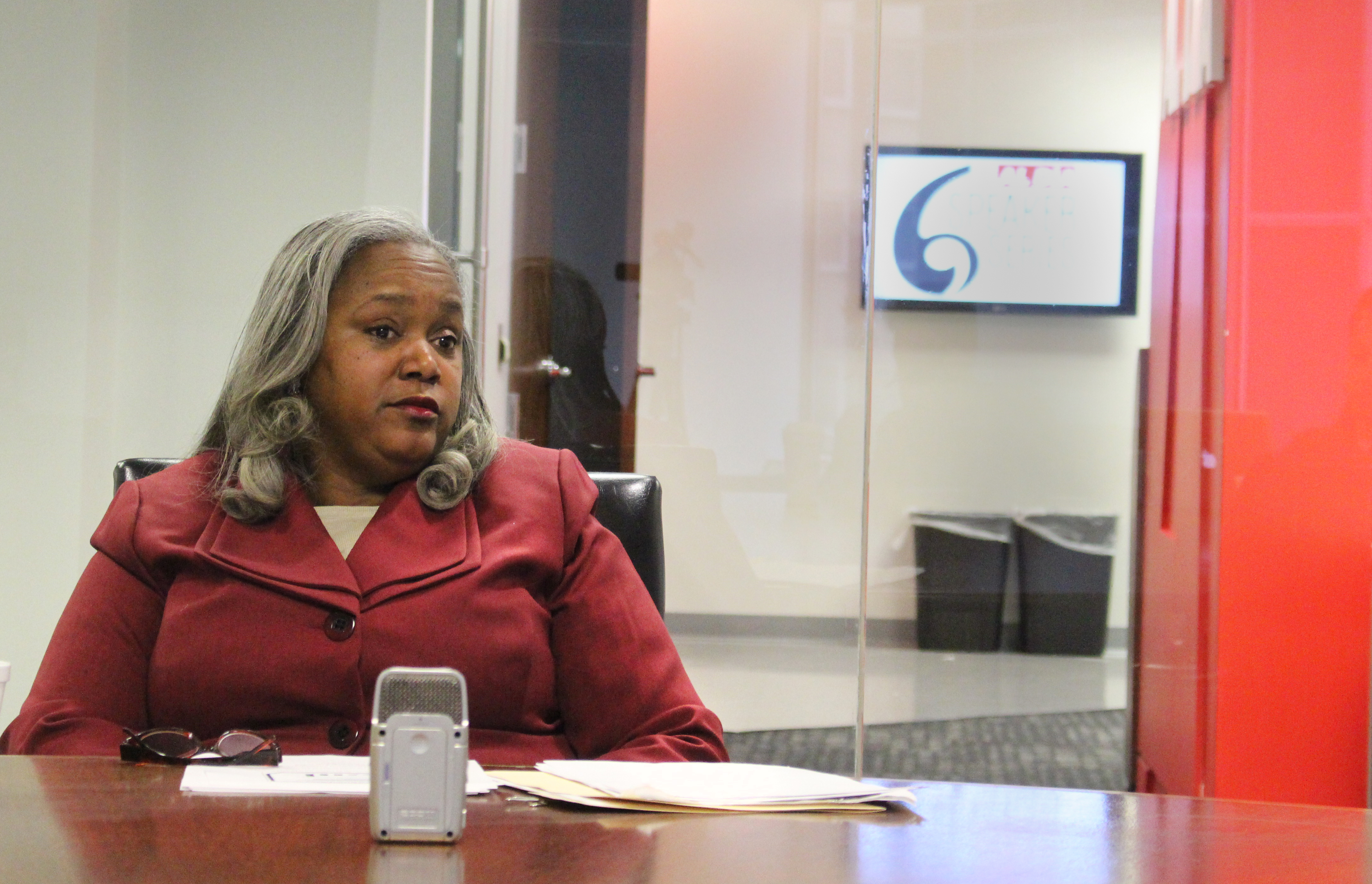
Tax talk with Clarena Tolson
At an AL DÍA roundtable discussion, we talked about tax reform, collection tactics, and the city’s future.
There are only a handful of 30-year veterans in Philadelphia public service, and Clarena Tolson is one of them. The Wharton grad was the first woman to work as Streets Commissioner, a position she held for 10 years. Now, she serves as the chief revenue collections officer. She is by all accounts the city’s top taxwoman.
Is her term to end with Philly’s new mayor? Not likely.
Tolsen started serving in the city under former Mayor William Green. She’s what you may call an “exempt employee,” meaning she serves at her own will and at the pleasure of any executive cabinet. Her accomplishments in the both Streets and Revenue are myriad, with a strong emphasis in public policy and logistics.
Revenue is currently making a big push on delinquent tax collection, Tolson says. They want to help close the school funding gap. Currently, four taxes support the school district — a portion of real estate taxes, all of liquor, all of the school income tax, and all of the use of occupancy tax. Last year, Revenue collected over $100 million in delinquent real estate taxes, a boon for the district.
Tolson believes that all Philadelphians need to pay their ‘fair’ share, and she has created something of a calculus to determine what exactly ‘fair’ means. At an AL DÍA roundtable discussion, we talked about tax reform, collection tactics, and the city’s future.
(Also, in case you missed it, here’s Tolson’s list of tax programs every Philadelphian should know about.)
On tax delinquency:
“Delinquency occurs throughout the entire city. However, it does have hotspots in areas where income levels are lower, where poverty is higher, where is unemployment is higher. If I were to draw a map and layer on top of it various demographics, it could probably align very closely to that [criteria]. We do pay attention and target our education and enforcement efforts to that.”
On enforcing payment:
“Not only is it important for us to have enforcement, but it’s also important for us to provide assistance. Because we do firmly believe everyone should pay their fair share. ‘Fair’ is determined based upon the circumstances people are in. I always lead with this because I know it’s a strong comment. I want people to understand that it really is important. But to the extent that we can assist in that process of defining what is ‘fair,’ I want us to do that in our future.”
On tax reform:
“We have got to do more to help those that live in the city. I’m a longtime resident. I was born here, educated in the public school system, and my personal opinions are shaped by that. That’s who I am. But I also believe that we have to help all those who call the city their home — however they may have gotten here, whether they were born here or just moved here. As a department, I think we also need to do more to reduce delinquency. Tax policy is going to develop over time. There’s certainly a push to look towards real estate-based taxes, and a push for point-of-sale issues. We don’t know where it will ultimately end up in 20 years, but we know that it’s going to evolve and evolve quickly.”
On 10-year tax abatements:
“One program which many believe is in response to the 10-year tax abatement for new construction. The Longtime Owner Occupancy Program (LOOP). Many people who are eligible for that program and have not taken advantage of it yet, and we have to continue to educate people about the availability of that.”
On expanding the LOOP program:
“We worked with Council on the amended language. The final language of the bill we actually helped craft. Our concern was that the people who had received abatements or federal assistance could not qualify for LOOP as it was previously defined. And that language was honed in to say if you received federal assistance or subsidy for low-income housing, you could qualify. But if you received other types of assistance or benefit that wasn’t based upon low income, you would not qualify. That was our concern — that it was too broad of an exclusion that was being developed.”
On long-term delinquency:
“Many property owners are motivated by the economics of the situation, particularly those that are in business. It may not work for someone who works in their house. The notion of taking the rents to pay off the taxes is one that is challenging for them.”
“We don’t always know what money people have. We offer assistance to those who may need assistance, or for those who are in business. We have increased our sheriff’s sales to approximately 1000 properties a month now. That’s nearly triple where we were several years ago. Not all of them get sold. Most of them pay their taxes before sheriff’s sale. 75 percent to 85 percent will manage their tax bill before the sale.”
On taxing delinquent business entities:
“We are aggressively pursuing all classifications of delinquents, but there are different remedies for each circumstance. One program is the Commercial Activities License Revocation program is for delinquent business taxes. We pursue them initially through enforcement action, collection agencies, the courts...but people continue to not pay their taxes and to ignore the rules. As a result, we have to tell them we will close their business by revoking their commercial licenses. There’s another program we started last year called Sequestration (also known as Receivership) wherein through court order we have a receiver — for lack of a better word — take control of the property, take over the rents, pay back the taxes, and then turn the properties back over to the owner once that is done. Through these two programs we collected $30 million in a year.”
On her work and the nature of the department:
If we cared only about money then we would never offer assistance to people. We would never care to engage them or try to help them pay their bills. And we would simply sheriff sale and lien sale everything as some cities do, and not be concerned otherwise. Public policy would suggest that you have to examine and be aware of the environment that we work in. Though I need to maximize the efficiency of our agency, it is not at the cost of doing that without assisting those who need assistance.










LEAVE A COMMENT:
Join the discussion! Leave a comment.